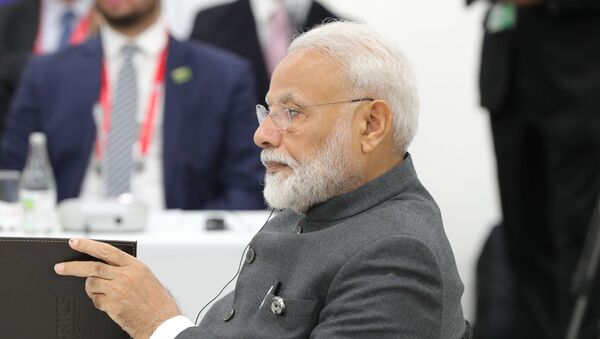India’s finance minister has announced tax concessions to the tune of $20 billion for businesses, setting alight the stock market, which saw its biggest rally in a decade on Friday.
The benchmark Bombay (Mumbay) Stock Exchange closed with a jump of 1,921 points at 38,014.62, while the National Stock Exchange, NIFTY closed at 11,274.20 with a gain of 569.40 points at the close of the market.
Prime Minister Narendra Modi has described the measures as “a great stimulus to Make In India, attract private investment from across the globe, improve competitiveness of our private sector, create more jobs and result in a win-win for 130 crore Indians”.
— Narendra Modi (@narendramodi) September 20, 2019
— Narendra Modi (@narendramodi) September 20, 2019
The announcement came just a day ahead of Modi’s US visit, where he will be meeting top business leaders in America to seek investment and other possible opportunities.
Taking a jibe at Prime Minister Modi, opposition Congress Party leader Rahul Gandhi said, “Amazing what PM is ready to do for a stock market bump during his #HowdyIndianEconomy jamboree. At +1.4 lakh crore Rs. The Houston event is the world’s most expensive event”.
— Rahul Gandhi (@RahulGandhi) September 20, 2019
The tax relief/incentive will cost the public exchequer $20.5 billion in taxes in 2019-2020.
Kiran Mazumdar Shaw, Chairperson and Managing Director of Biocon - biopharmaceutical major, said “this is a great move which will firmly revive growth and investment”.
— Kiran Mazumdar Shaw (@kiranshaw) September 20, 2019
Uday Kotak, Chairman of private sector Kotak Bank termed it as “big bang reform”. He said the measures signals that the government is committed to economic growth and supports legitimate tax abiding companies.
— Uday Kotak (@udaykotak) September 20, 2019
This is the fourth major announcement since Parliament approved the budget proposals for the 2019-20 financial year, the first of Prime Minister Narendra Modi’s second term. The Indian economy has remained sluggish, with GDP growth at its slowest in over six years in the face of a sharp deceleration in consumer demand and lukewarm investment.


